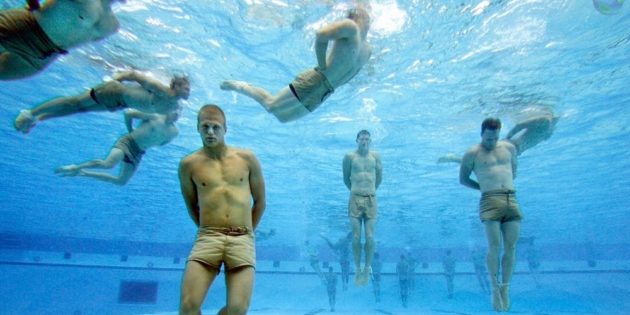by David Choi
A new internal review by US Special Operations Command says an “unhealthy sense of entitlement” was fostered among its newest candidates during their training process.
The unclassified report, titled “Comprehensive Review of Special Operations Forces,” focused on the culture and ethics in the special-operations community, which includes Navy SEALs, Army Delta Force, Marine Corps Raiders, and Air Force Pararescue specialists.
The review of the community was done after lawmakers called for investigations into the “misconduct and unethical behavior” by its service members, which “threatened public trust,” the report said.
The review also comes amid numerous reports of misconduct within the elite communities in recent months. In one instance in September, three senior leaders from a Navy SEAL Team were fired after “leadership failure,” including sexual assault and drinking alcohol during a deployment to Iraq.
Despite the examples of misconduct, the review found that SOCOM did not have “a systemic ethics problem” and that a “cultural focus” on recruitment and “mission accomplishment” negatively affected “leadership, discipline, and accountability.”
One of the provided examples included the initial training process for new recruits for special-operations forces, or SOF, who are often “segregated” from other service members undergoing conventional training. The report found that there was an “overemphasis on physical training” and questioned whether the recruits demonstrated a “balance of character and competence.”
“Negative aspects of [special-operations forces] segregation and entitlement were identified in certain Component recruiting, preparatory courses and early entry training,” the report said. “Overemphasis on physical training often comes at the expense of Service-specific professional development and acculturation.”
While SOCOM deemed the current curriculum for new recruits “mostly appropriate,” it added that the “lack of exposure” to the military’s “foundation and culture” created “a sense of entitlement.”
Special-operations troops typically receive unique funding and gear for their missions, which are outside the scope of conventional units. SOCOM’s budget requests to Congress have increased steadily in recent years, from $11.8 billion in 2007, to $13.6 billion in 2019.
“It didn’t happen during our period,” a former Delta Force commander told Business Insider, referring to misconduct allegations within the community. “We really were severe about policing ourselves. If you have a guy on your team that even had an inkling of being out of hand, he’s gone.”
“The misbehavior comes in waves, and please believe me I’m not being partisan when I say this, [but] the SEALs have a tough time with it,” the commander added. “It always happens in warfare. You always have some of those guys who [have been] waiting all their life to show that they’re a psychopath or they’re trying to impress one another — it’s juvenile that they’re trying to show how tough they are in a perverted manner.”
In a letter to SOCOM members following the report, the command’s senior leaders stressed that there were areas where improvement was needed.
“We have an incredible force, and the vast majority of you demonstrate that every day,” US Army Gen. Richard Clarke, the head of SOCOM, and US Navy Chief Master Sgt. Gregory Smith, the command’s senior enlisted adviser, said in the signed letter.
“The bottom line is that we have disproportionately focused on SOF employment and mission accomplishment at the expense of the training and development of our force,” the leaders added. “In some cases, this imbalance has set conditions for unacceptable conduct to occur due to a lack of leadership, discipline, and accountability.”
https://www.businessinsider.com/special-operations-forces-entitlement-misconduct-report-2020-1


Leave a Reply
You must be logged in to post a comment.